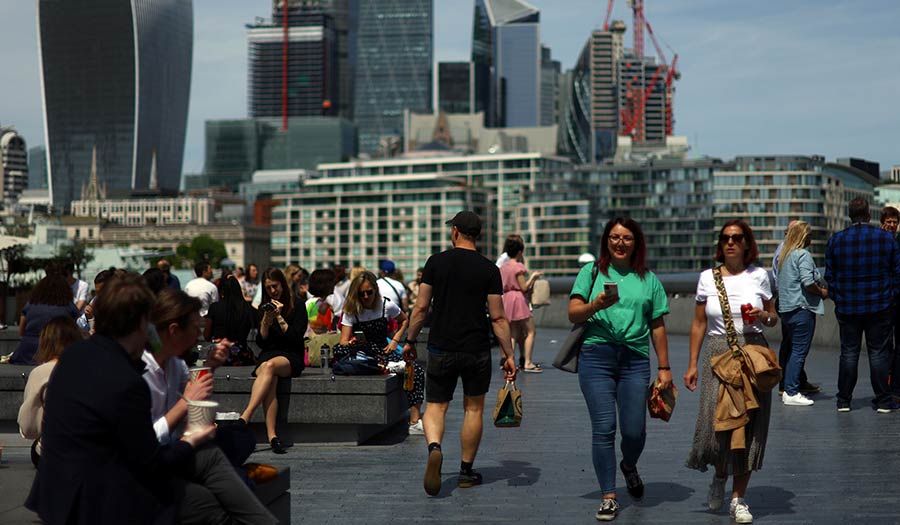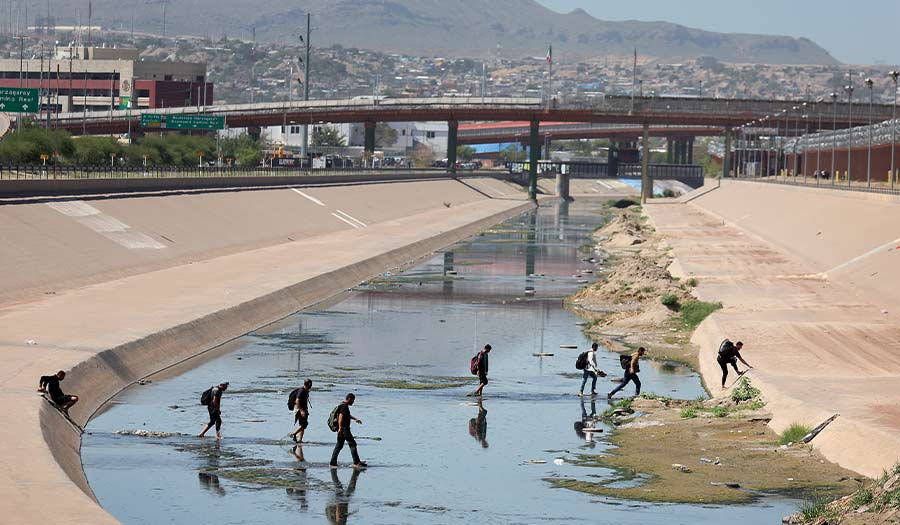 REUTERS/Hannah McKay
REUTERS/Hannah McKay
World News Desk
Learn the why behind the headlines.
Subscribe to the Real Truth for FREE news and analysis.
Subscribe NowBarely two in five people believe their families will be better off in the future, according to a regular global survey that also identified growing levels of distrust in institutions among low-income households.
The Edelman Trust Barometer, which for over two decades has polled the attitudes of thousands of people, found that economic pessimism was at its highest in some of the world’s top economies, such as the United States, Britain, Germany and Japan.
It further confirmed how societies have been divided by the impacts of the pandemic and inflation. Higher-income households still broadly trust institutions such as government, business, media and non-governmental organizations. But alienation is rife among low-income groups.
“This has really shown the mass class divide again,” said Richard Edelman, whose Edelman communications group published the survey of over 32,000 respondents in 28 countries interviewed from November 1 to November 28 of last year.
“We saw it in the pandemic because of differential outcomes in terms of health, now we see it in terms of the impact of inflation,” he added. The World Health Organization and others have noted the higher toll of the pandemic on the poor, while those on low incomes suffer most from costlier basic items.
Globally, only 40 percent agreed with the statement “my family and I will be better off in five years” compared to 50 percent a year before, with advanced economies most downbeat: the United States (36 percent), Britain (23 percent), Germany (15 percent) and Japan (9 percent).
Fast-growing economies saw much higher scores—albeit lower than last year—with only China bucking the trend with a one percentage point rise to 65 percent despite the economic disruption caused by its now-relaxed “zero COVID” policies.
Such anxieties reflect deep uncertainty about the state of the global economy as the Russia-Ukraine war continues and central banks hike their lending rates to tame inflation. The World Bank has warned it could tip into recession this year.
While Edelman’s longstanding Trust Index registered an average 63 percent trust level in key institutions among high-income U.S. respondents, that figure fell to just 40 percent among low-income groups. Similar income-based divergences were present in Saudi Arabia, China, Japan and the United Arab Emirates.
In some, that hinted at outright polarization, with high levels of respondents agreeing with the statement “I see deep divisions, and I don’t think we’ll ever get past them” in countries as different as Argentina, the United States, South Africa, Spain, Sweden and Colombia.
While such attitudes inevitably reflect current events, the ebbing of trust in government in particular has been a key theme of the survey for several years, with its trust levels this year sharply lower than relatively healthy ones scored by business.
This report contains information from Reuters.
- Real Truth Magazine Articles
- ECONOMY & PERSONAL FINANCE
 Economic Disparity
Economic Disparity
More on Related Topics:
- Scammers Are Swiping Billions from Americans Every Year. Worse, Most Crooks Are Getting Away With It
- Fight for Control of Yemen’s Banks Between Rebels, Government Threatens to Further Wreck Economy
- A Quarter of the World’s Children Under 5 Have Severe Food Poverty, UN Says
- The UN Says Global Public Debt Hit a Record $97 Trillion in 2023. Developing Countries Are Hard Hit
- Borrowers, Especially the Young, Struggle with Credit Card Debt in Potentially Bad Sign for Economy


